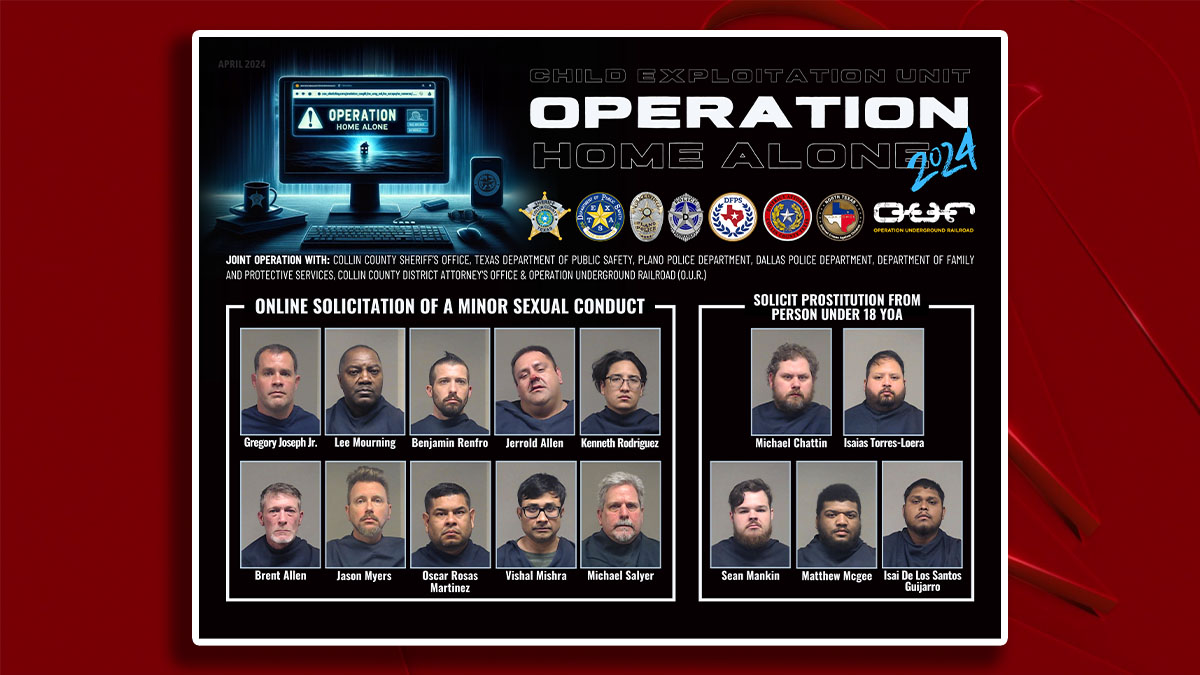Houston-area traffic congestion has never been a picnic. A new study now estimates it is almost a paid vacation.
The Houston Chronicle reports Houston-area commuters waste 75 hours -- almost two full work weeks -- annually as a result of roadway congestion, according to an updated Urban Mobility Report, released Thursday by the Texas A&M Transportation Institute. The wasted time is not the duration of a motorist's trip: It is the added time that trip takes as a result of crawling along the freeway and getting stuck at gridlocked intersections on city streets.
The new report, the first update of the nearly 40-year study since 2015, paints a dire picture of commuting in Houston, which by nearly every measure has the worst traffic in the state.
"Houston has been getting worse in terms of the delay per commuter," said Tim Lomax, a research fellow at the transportation institute and co-author of the report. "If there's good news, if you want to call it that, (Houston) has been getting worse at the rate everyone else is."
The region ranked ninth in terms of per-person hours wasted annually. Los Angeles topped the list, with commuters there wasting an average of 119 hours, far ahead of San Francisco and Washington, D.C., with 103 and 102 hours, respectively.
The way out of the morass of more congestion -- researchers largely have stopped talking about reducing congestion in places like Houston, and instead talk about slowing its worsening -- requires changes in how people commute. Options range from targeting road projects to improve efficiency of the current lanes, added use of carpools and transit, and simply changing when people head to work.
"I think it is pretty clear that everything isn't happening enough," Lomax said.
Local
The latest news from around North Texas.
For Houston commuters, who researchers estimate each spend $1,376 and waste 31 gallons of fuel a year simply because of congestion, the worsening conditions are no surprise. Gerald Cote, 59, said the region's growth has made his morning commute not only a slog along the freeway, but a crawl just to get to the freeway.
"Now, the traffic starts when I leave my neighborhood," Cote said as he fueled his pickup at a gas station near Interstate 10 near Wilcrest.
That cascading commuting congestion effect is leading to jumps in most every metric transportation researchers use to assess traffic in the 494 urban areas studied.
Among the Houston findings:
- The 75 hours of wasted time is 20 hours more than in 2010.
- One-quarter of the lane miles of road in the region are congested at some point during peak commuting periods, leading to more than five hours of rush hour in the region each day.
- Across the entire region, congestion costs workers and businesses $4.55 billion, up from $2.96 billion in 2010.
Driven in large part by the rapid growth in the Houston suburbs, the entire region's overall wasted time -- the time lost because of the heavy traffic that slows down streets and freeways -- climbed from about 210 million hours in 2012 to nearly 250 million hours in 2017, the latest year studied in the report.
"We are seeing our usual story which is economic prosperity leads to more congestion," Lomax said.
Following the recession that began in 2008, officials predicted changes in commuting patterns -- transit use, carpooling and more reliance on off-peak travel -- would solidify and start to change habits.
"Our data just doesn't show that," Lomax said, referring to the updated estimates. "It shows that there is a pretty direct link between economic growth and congestion."
In many of the metro areas, there also is a symbiotic relationship between growth and getting stuck behind a truck in congestion.
"You are going to have to have those products and services delivered to those people," said Bill Eisele, a report author and senior research engineer at TTI.
Nationally, truck traffic represents 7% of the traffic on roads, but the cost of the time they spend in traffic amounts to 12% of the massive, $166 billion cost of congestion. Half of that $20 billion cost related to trucking is occurring in the 15 largest metro areas in the nation, including Houston.
Though Houston is crisscrossed by freeways with long-haul freight, much of the goods moving around the area are staying local.
"Often times the tricky part is that last mile," Eisele said of coordinating freight trips.
Though hair-pulling frustration levels because of traffic mostly are the terrain of major metro areas, there are signs of traffic migrating along with some residents to suburban and smaller metro regions. Beaumont-area residents averaged 41 hours of wasted time annually in 2017, up from 34 hours in 2014. Over the same period, Corpus Christi increased to 38 hours, from 31 hours. Laredo, which has seen a spike in cross-border trade, jumped from 18 hours of wasted time in 2014 to 32 hours in 2017.
"People are more mobile now," Lomax said. The result, he said, is they are bringing city traffic to places that pride themselves on their small-town feel.
Getting rid of the traffic will take a number of old and new options and vary from place to place.
Instead, some of the far-flung parts of major metro areas will see greater use of commuter buses and further development of clusters where people can live and work without lengthy trips, researchers said.
There are success stories, Lomax said, including Houston where Houston TranStar, which monitors traffic conditions and provides up-to-date information, is a model for helping address congestion. TranStar's revived Tow & Go program which offers free tows to stranded vehicles to clear freeway lanes, also is a bright spot, Lomax said.
The report's authors and the Texas Department of Transportation, which funds the mobility report, also suggest continued reliance on widening roads in some cases.
"The value of investing in our nation's transportation infrastructure in a strategic and effective manner cannot be overstated," said TxDOT Deputy Director Marc Williams, in a news release.
In the past, the suggestion of wider freeways as a solution to crowded freeways led to criticism of the report for advocating sprawl. Joe Cortright, a frequent critic of the TTI report, said in a 2017 analysis that the report often "penalizes cities that have shorter travel distances and conceals the additional burden caused by longer trips in sprawling metropolitan areas."
Though researchers have amended some of the study over the past decade to reflect some of the concerns, many of the densest and transit-rich areas still score poorly in terms of wasted fuel and time. San Francisco, New York and Boston rank above Houston in terms of auto commuter delay even though far more people in those metro regions use transit to commute.
Lomax said that is one of the reasons researchers suggested in the report that solutions will vary from place to place and even within metro areas. Inside Loop 610, for example, it is likely more transit will come. Outlying parts of Houston will rely further on commuter buses and more jobs located in western and northern suburbs.
"You are not going to solve the problems in Katy with transit that runs around Katy.," he said. "It doesn't have the density."
Meanwhile the expectation of what "solving congestion" means will vary both among the regions and within places like Houston.
"If you could get downtown Houston and the area inside the loop to be heavy traffic for only eight hours a day, you are doing a good job," Lomax said.



